Travertine Patio (Pavers & Tile Design Guide)
A travertine patio is a smart investment where you can enjoy quality materials and style without breaking the bank. Made from a cost-effective tile material, a travertine landscape can add value to your property and increase the attractiveness of your backyard.
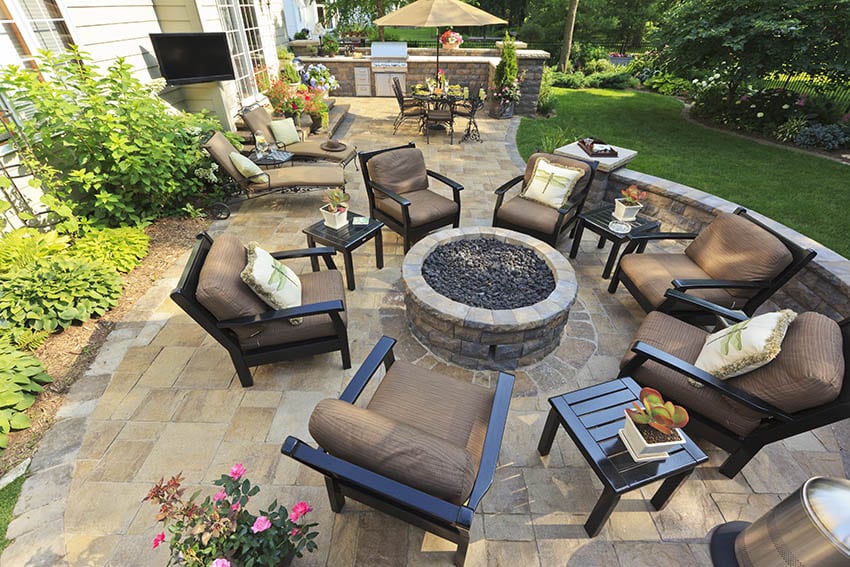
While wood and concrete are arguably the go-to materials for outdoor living, it’s undeniable that pavers offer much visual impact, if not more than their said counterparts, depending, of course, on your preference.
However, the strength of a patio made from travertine tiles is that you can enjoy the outdoors any time of the day or climate. To top it off, the design possibilities are endless, which allows homeowners to put on their designer’s hat and enjoy much of the process of beautifying their home.
What is a Travertine Patio?
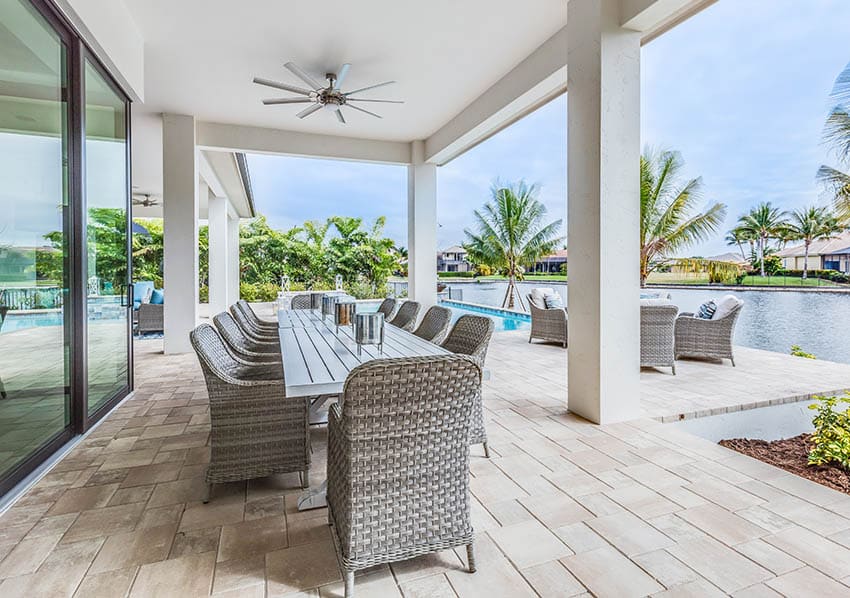
A travertine patio is an extension of your outdoor living typically attached to your home with or without a roof and has pavers made of travertine tiles.
You’ll know when you have a travertine patio if you’ve got natural stone pavers that look porous and textured, usually with warm earthen colors. Although when sanded down, the travertine will look smoother, it still has that mottled texture.
Travertine backyard patios can either go for the modern or traditional look, where the rustic theme is the most popular and common style choice for natural stone.
With the tiles’ versatility, they have a gorgeous finish that can fit any surface. Have them on your planters, outdoor fireplaces, or built-in seating.
Travertine paver patios are comfortable to walk on, and they’re great to use for the pool deck, thanks to their heat reflectivity and low heat absorption that remains cool even when exposed to the sun. Most importantly, its coarse surface means you won’t easily slip even when the tiles are wet.
Makeup: Travertine is an especially attractive form of limestone. Its fibrous, marble-like texture and attractive earth-tone colors make it one of the most popular stones used for building materials.
Durability: A travertine surface can stand the test of time. Travertine tiles although very durable and easy to maintain compared to other types of natural stone.
Travertine Tiles or Pavers?
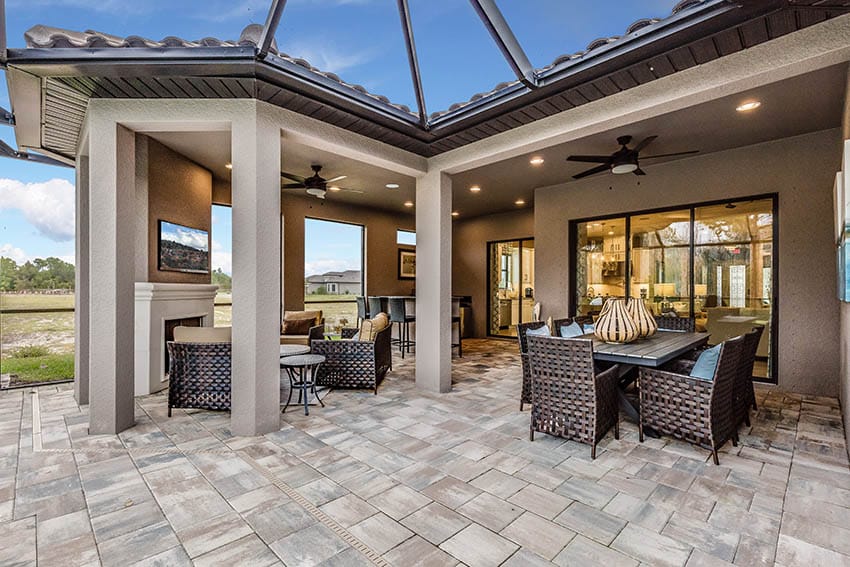
The difference between tiles and pavers is the size and the edge cut. Travertine tiles are usually ½ inches thick, while pavers are thicker with a 1 ¼ to 4 inches thickness.
Another distinguishable difference is that the tiles are straight-edged, so they can be laid side by side to have a seamless look. While pavers are usually chiseled or with tumbled edged-cut. The most popular tile sizes are 12×12, 12×24, 18×18, and 8 x 12.
When choosing between tiles and pavers, consider their application on your outdoor patio. If you plan to have a seamless look, go for travertine tiles, where you’ll have a grout to hold the tiles in place. Travertine tiles can be laid in different distinctive patterns, such as brick-laid and Versailles patterns.
For the larger-sized travertine pavers, they can be laid out without grout in between. This allows the natural ground cover, such as grass or stone pebbles to go between the pavers.
Having a grouted surface allows rainwater to drain easily in between without planning for your drainage system. The only downside with travertine pavers bounded by grass or pebbles is the relative maintenance that goes with the previous surface.
You can also combine travertine tiles and pavers in your travertine patio or porch.
Travertine Layout For Patio
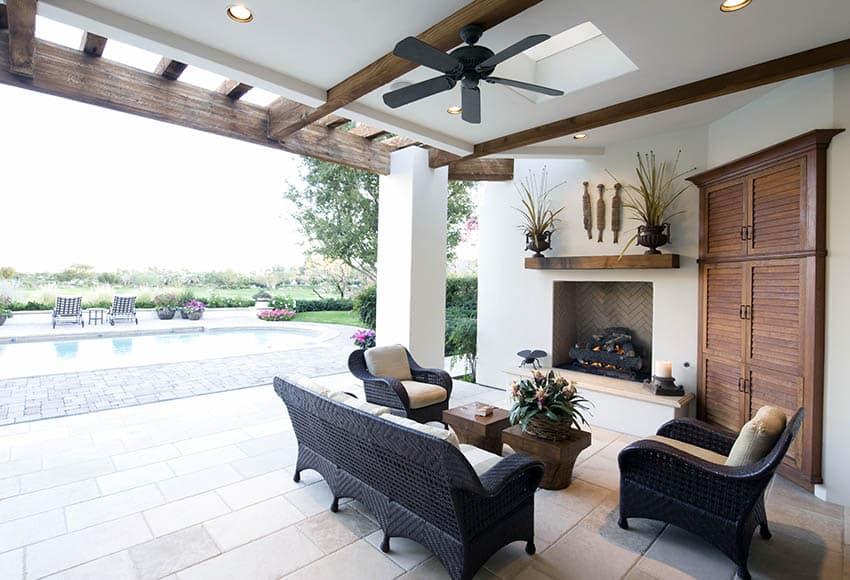
With the various sizes and cuts available, you can create a variety of patterns for your patio flooring and cladding. The most popular traditional layouts are Versailles, brick, French pattern, and Herringbone.
Other patterns include:
Fish pattern
Mosaic-checkered
Mosaic-wave
Mosaic-wave corner
Star pattern
Basket Weave
Diamond-cut
Corner set
Rattan
Travertine Paver Pattern
Travertine Stone Finish
Another advantage of travertine as your patio material is its availability. You can find the stone tile in almost any tile shop.
You do need to know the right finish for your stone surface. Honed, Tumbled, and Brushed finishes are great for outdoor use, especially as a pool deck because of their textured surface. For best traction, use a tumbled travertine finish which is characterized by round corners and edges.
However, you may need to seal it to prevent it from staining. If you want a matte finish, go for the brushed travertine tile.
For a honed finish, they come as a slightly polished surface, advisable for travertine patios with enclosed designs.
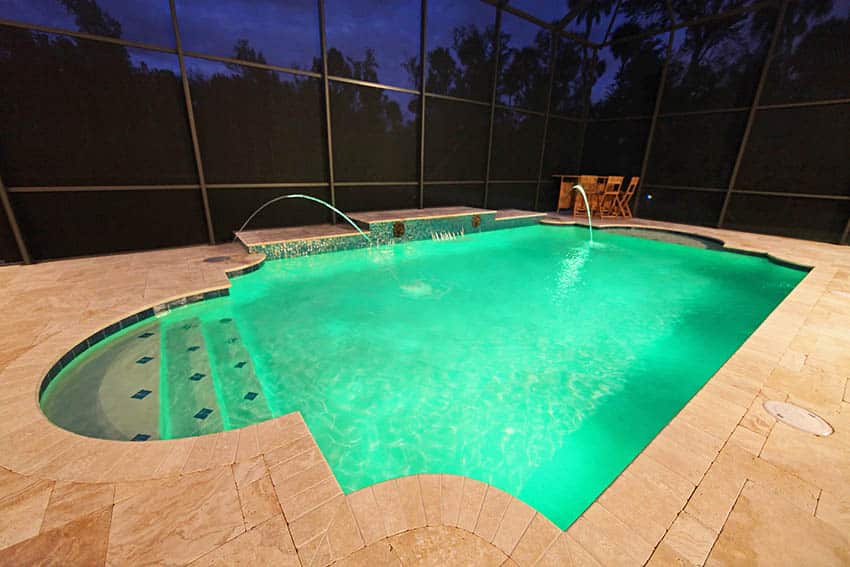
Travertine Stone Patio Cost
Compared to marble, travertine is less expensive but can still be pricier than granite or limestone. Though with its unmatched benefits, a patio made with travertine is still a sound option.
Meanwhile, for a wooden deck, the material’s high maintenance and design limits can put you off if you want more versatility in your design.
A concrete patio is also a great option due to its affordability and design possibilities. The only issue with concrete is that, just like wood, it expands and contracts when subjected to extreme and varying temperatures. Money-wise, travertine is a practical option.
Travertine belongs to the mid-range stone when it comes to its cost; however, it is considered a high-end stone material overall. So, how much does a travertine patio cost?
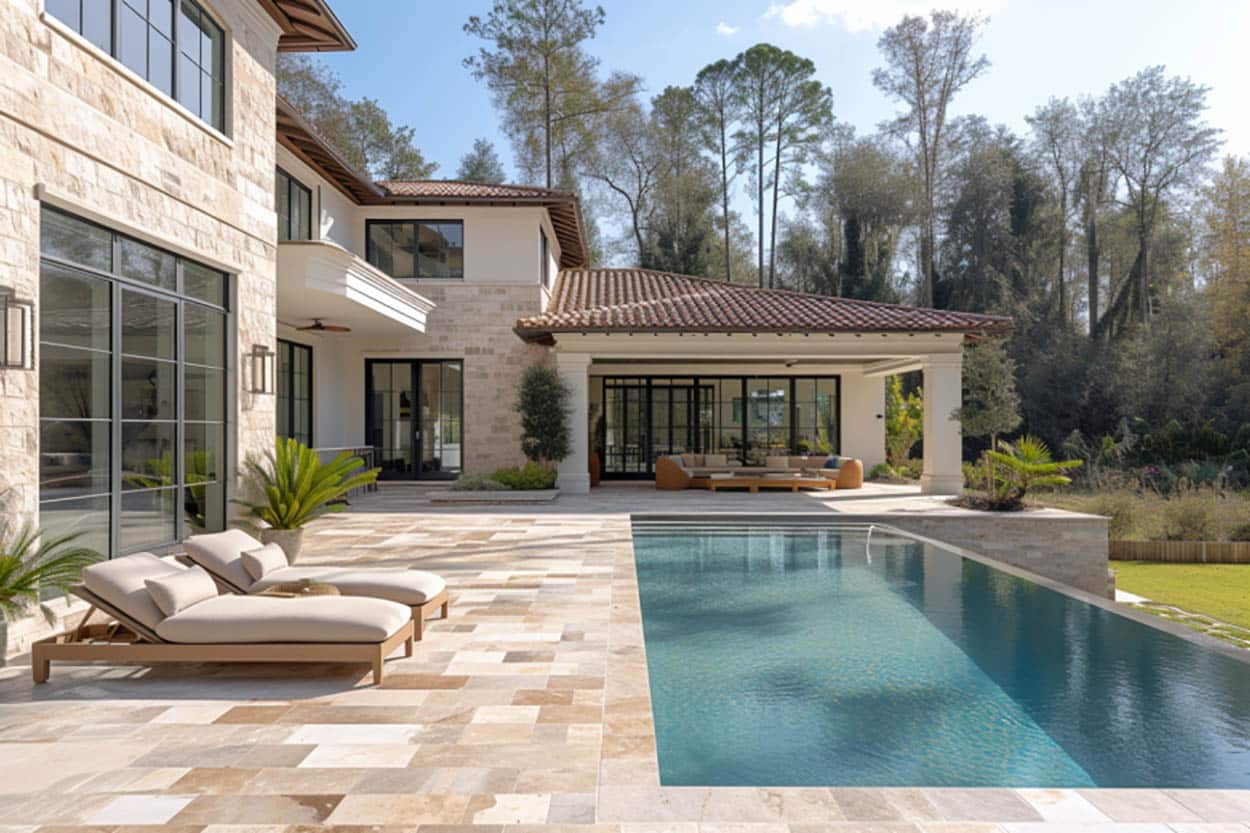
Expect to pay around about $15 to $30 per square foot for materials plus labor. That depends on the finishing, cut, and tile grade.
There are many other factors to consider when it comes to your overall costs, such as design complexity, layout size, and features.
As a baseline, a 300 square foot natural stone patio could fetch from $3900 to $15,000 for both materials and labor.
Other features that you can incorporate into your floor plan is a fire pit, outdoor kitchen, built-in seats, roof, and enclosures. You should also consider the permits which can go around $300 to $1900 depending on your location and project details. Utilities should also be on top of your list.
Another factor in your cost is whether you opt for a DIY project or hire a professional. Having an expert install your travertine patio saves you more in the long run because you are rest assured that the right installation techniques are done.
However, DIY is a sound option if you have the skills and can dedicate around 40 to 50 hours of labor.
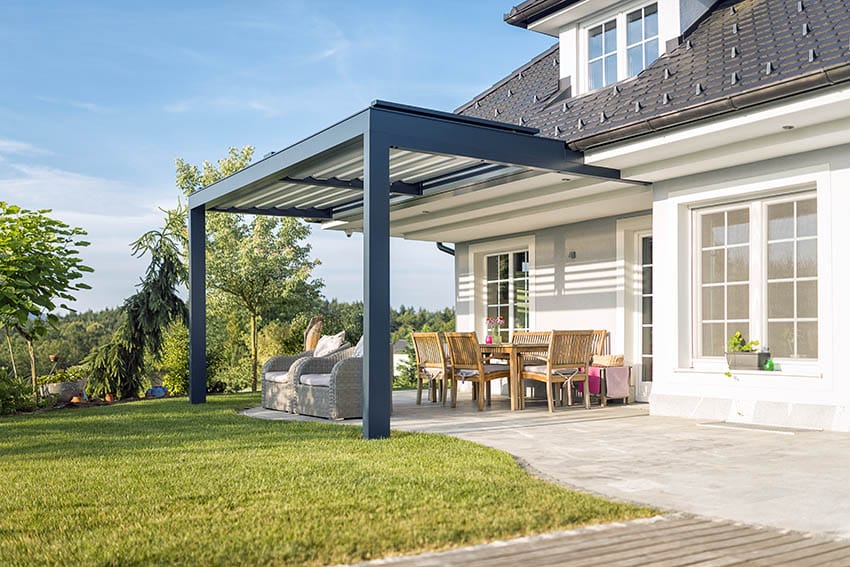
How to Clean Travertine
Just like any other stone material, proper care should be done to maintain and prolong longevity. Clean your travertine patio using a mild PH-neutral detergent and water for soiled surfaces, and never use vinegar or other harsh chemicals that can wear off the sealer.
As travertine is porous, you may need to disinfect, sweep, vacuum, and mop every week to prevent molds and other tiny particles from accumulating.
For hard-to-remove stains, a poultice mixture of baking soda and water can be used. Apply the mixture to the affected area, cover it with plastic wrap, and let it sit for 24 to 48 hours. Afterward, rinse the area.
You also need a Natural stone protective sealant, as exposing the stone can lead to discoloration and staining. Regrouting and resealing should be done every three to five years.
To see more types of patios visit this gallery page.

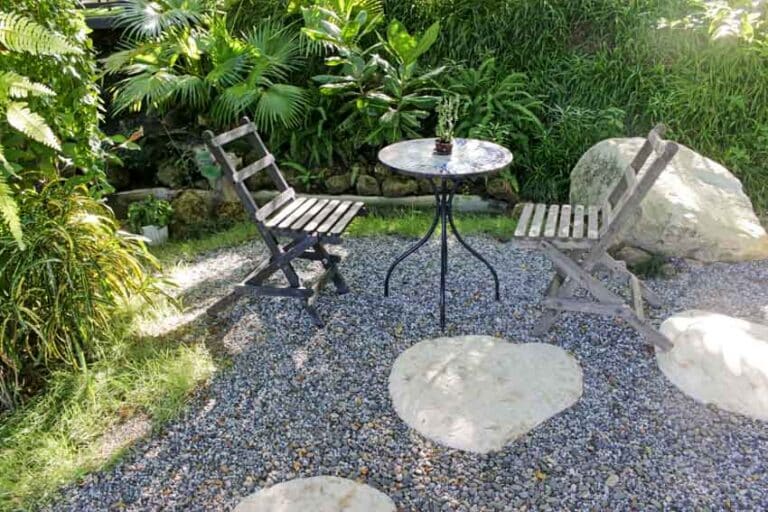
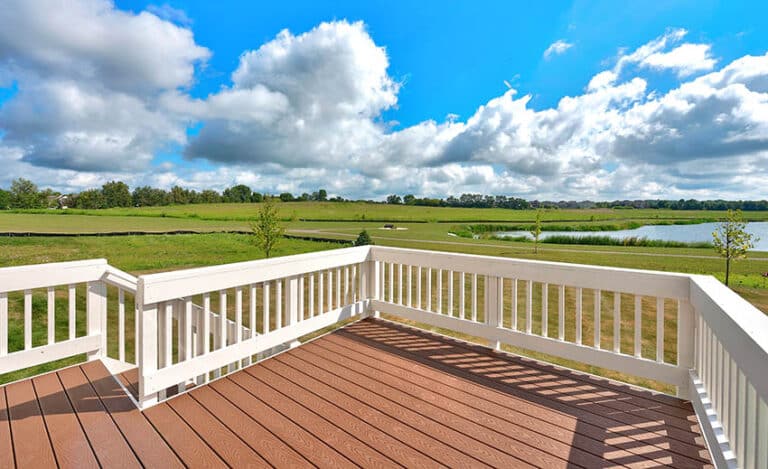

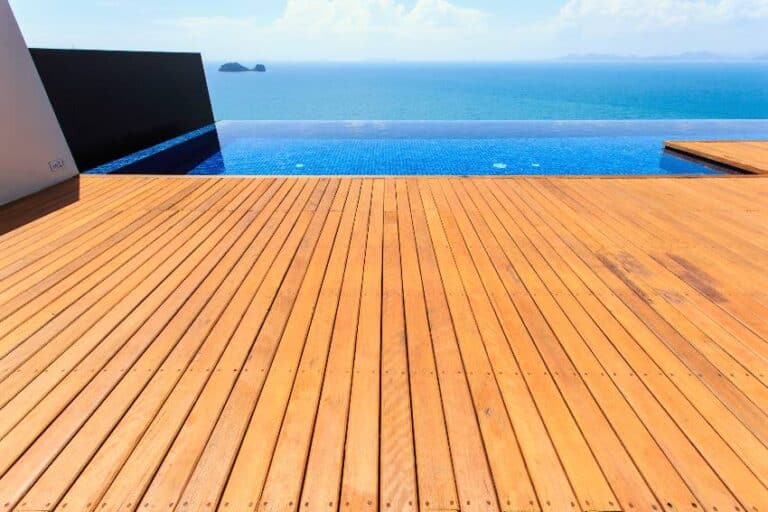

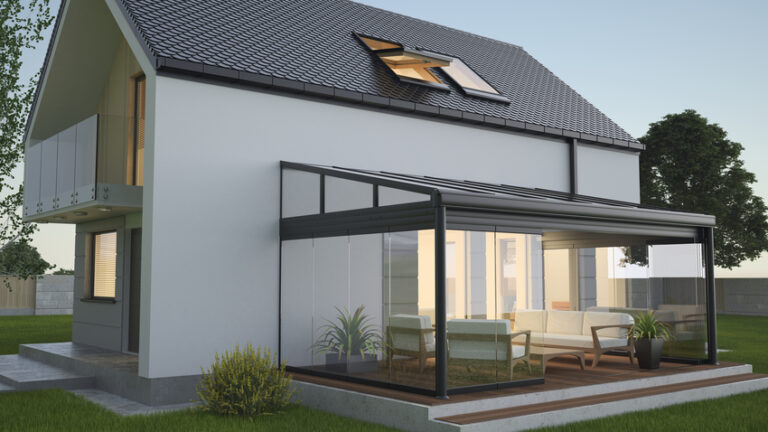
I love my travertine pavers that came with the house I bought. I want to install more of them on my sideyard to create more outdoor living space. A couple weeks ago I got an estimate to add more travertine to my side yard and I was pretty shocked at the prices for installation. I don’t think I’ve got the skills to put these in myself although I think it would save me a lot of money if I could figure it out.
All kinds of home improvement building supplies have supply shocks right now due to factories and quarries being shut down.
You may be better off waiting a little while until the supply chain starts to get back to normal.
Ive been wanting to build a deck on my home this year but lumber prices are incredibly expensive – They are already starting to slowly soften.
I hate my travertine tile deck. It gets full of weeds and instead of enjoying the pool it is just steady work. I wish I would have installed cool deck instead. I have had both and this is a nightmare. Replacing would probably be very expensive and I am stuck with what I have. I purchased a weed burning tool to try to tame the weeds.